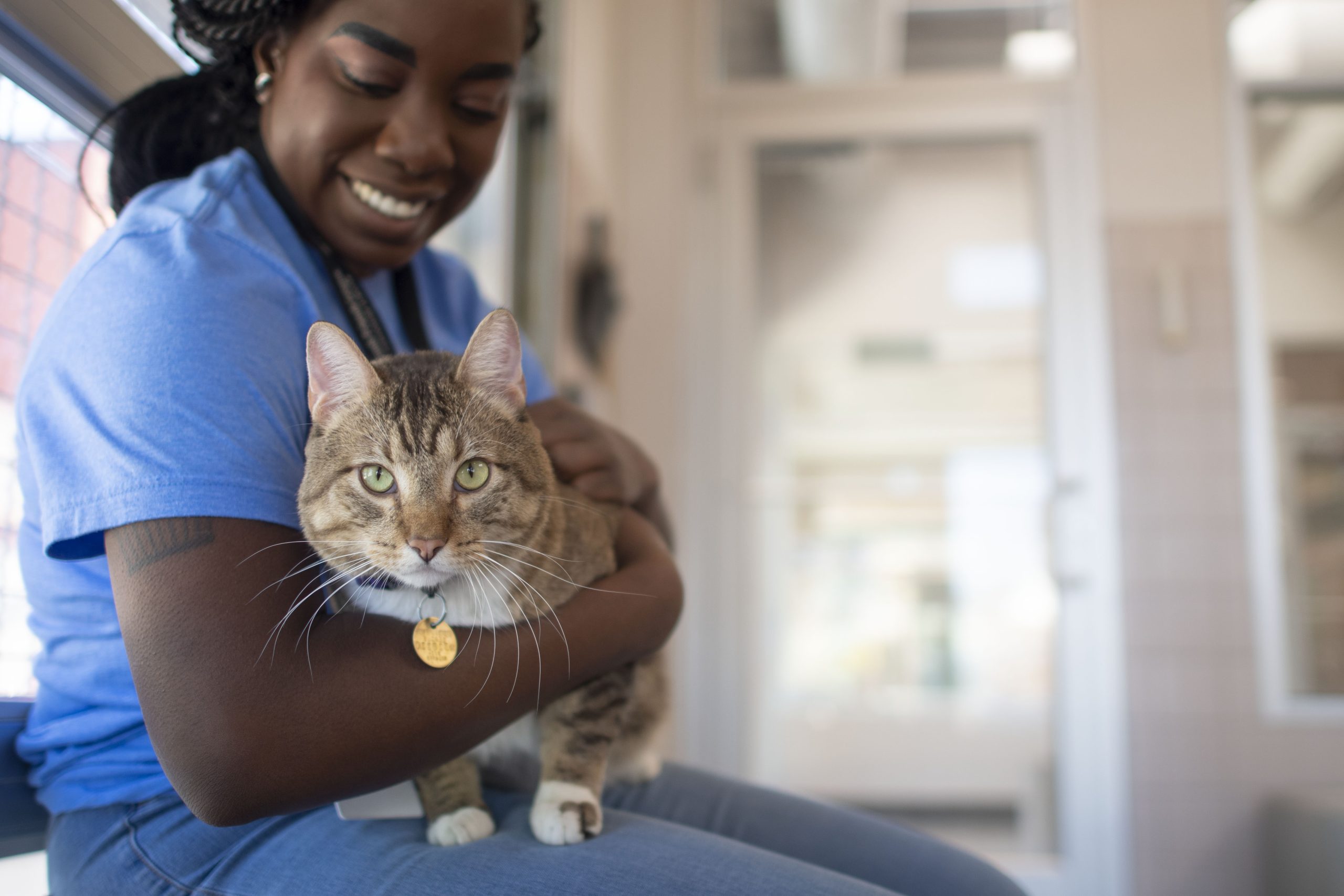
By Molly Jenkins, Senior Writer and Courtney Knerr, Social Media Specialist
At the Dumb Friends League, we are deeply committed to supporting the mental and emotional well-being of the animals in our care. To us, this work is just as important as healing wounds, mending fractures, and treating disease. Many animals in shelters have experienced profound trauma associated with recurrent loss, physical pain and distress, or neglect from people they have relied upon for protection. Moreover, despite the best efforts of those in animal welfare, shelters are stressful environments, filled with unfamiliar noises, strange smells, people never before seen, and a lack of predictability that can make everything feel uncertain.
As a volunteer, it is important to know how the League nurtures the emotional well-being of the animals in our shelters. The truth is many of our methods are not unlike what we do for ourselves and the people in our lives. First and foremost, our team gets to know each animal as an individual so we can build trust, communicate with them effectively, and understand the best way to meet their unique needs. For all animals, we seek to:
- Limit stressful stimuli
- Allow time and space for rest and appropriate physical activity, as well as respite from the shelter through foster care placements
- Encourage the expression of species-typical behaviors
- Provide soothing comfort, social connection, and ample opportunities for play and affection
Below are just three examples of how we support the emotional well-being of animals waiting to find a new home. Through these activities, our goals are to help them recover from adverse experiences and manage “all the feels” associated with the shelter so they can thrive over the long-term.
Enrichment
Our staff and volunteers continually look for creative ways to alleviate the stress and tedium of kennel life. Animals in shelters may display unwanted behaviors that make their adoptions more challenging simply because they have limited opportunities to sniff, chew, hunt, scratch, burrow, play off-leash, and do all the things happy animals instinctively love to do. While enrichment looks different for each species and individual animal, these activities often include walks and yard time, learning new tasks, food puzzle games, eating a variety of tastes and textures, social bonding, grooming, calming music in kennels, and opportunities for privacy and sensory stimulation. Think of something or someplace you enjoy that engages your heart and mind and distracts you from your worries. That’s enrichment.
Daily quiet hours
The League sets aside an hour each day – from noon to 1:00 p.m. to be exact – to provide rest and relaxation for dogs most prone to shelter-related stress. During this special time, we turn down the lights, shut the blinds, and limit staff and volunteer entry into their kennel area. This helps provide dogs with much-needed calm in the midst of constant activity and allows them to reset so they can put their best paw forward while meeting potential adopters.
Behavior-Medical Treatment Program
Recently, we have started to integrate the use of medications – such as Trazodone, Gabapentin, and Fluoxetine – with behavioral training and support. The League’s Shelter Veterinary Services (SVS) team collaborates with our Behavior Technicians to treat select animals experiencing fear, separation anxiety, overgrooming, repetitive behaviors, extreme high energy, and other harmful behaviors commonly observed in shelter environments.
Adopters are given a 2-week supply of any medications their new pet is taking and instructed to follow up with their veterinarian to assess if treatment is still needed outside the shelter. While this new program is still developing, we’ve had notable success in helping participating animals cope as they take their next steps.
Caring for an animal’s mental and emotional well-being is essential to their overall health and happiness. To learn more about animal enrichment, please visit the League’s online behavior resource library. You can also see the new Cat Enrichment Room at our Veterinary Hospital at CSU Spur, where we rotate various types of feline enrichment for adoptable cats and kittens each day.
